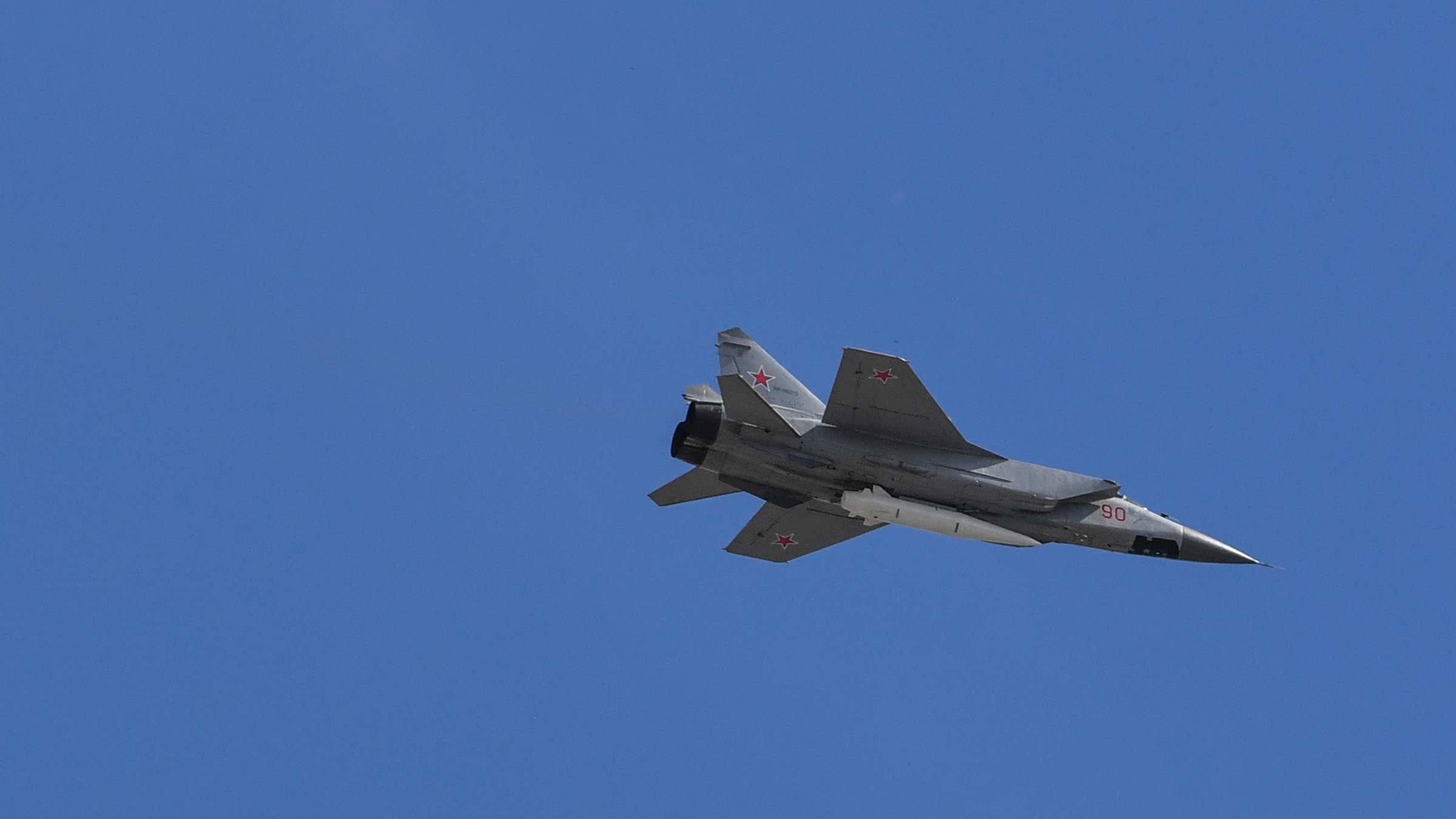What are hypersonic missiles and why does the UK need them?
Russian invasion of Ukraine has hastened efforts to develop ‘consequential weapon’

A free daily email with the biggest news stories of the day – and the best features from TheWeek.com
You are now subscribed
Your newsletter sign-up was successful
Britain is planning to work with the US and Australia to develop nuclear-capable hypersonic weapons.
A statement from Joe Biden, Boris Johnson and Australian Prime Minister Scott Morrison announced an expansion of the Aukus trilateral security pact in the form of “cooperation on hypersonics and counter-hypersonic” weapons, The Guardian reported.
How do they work?
Hypersonic missiles can reach up to five times the speed of sound, or 3,850mph. In comparison, US Tomahawk cruise missiles travel at around 550mph, according to military systems company PartYard Military.
The Week
Escape your echo chamber. Get the facts behind the news, plus analysis from multiple perspectives.

Sign up for The Week's Free Newsletters
From our morning news briefing to a weekly Good News Newsletter, get the best of The Week delivered directly to your inbox.
From our morning news briefing to a weekly Good News Newsletter, get the best of The Week delivered directly to your inbox.
Hypersonic missiles do not follow a predetermined, arched trajectory. Instead they are able to use the air to move in flight.
There are two main types of the missile, the first of which are “glide vehicles”, said The Times. These are “launched into space on a rocket before gliding to their target”.
The second variety are “cruise missiles”, the paper added, which “have engines that use the air’s oxygen and produce thrust during their flight” allowing them to “cruise at a steady speed and altitude”.
How much do they cost?
US Air Force Secretary Frank Kendall told Defense News that they could cost anywhere from $50m (£38.1m) to $100m (£76.3m) each, though the hope is to get the unit price down to $10m (£7.6m).
A free daily email with the biggest news stories of the day – and the best features from TheWeek.com
Pentagon officials calculated that, in coming years, hypersonic weapons will add $21.5bn (£16.4bn) to the navy’s budget and $7bn to the army’s. However, these estimates are “tentative as the technology emerges”, The Guardian said.
Who else has them?
Tthe US, China and Russia have “the most advanced capabilities”, said The Times. The US “quietly tested its own hypersonic missile last month”, The Guardian added.
Australia, France and Germany are, like the UK, investigating the technology.
Why does the UK want them?
Announcing the plan, Stephen Lovegrove, the UK’s national security adviser, referenced Russia’s invasion of Ukraine, saying it made it “more important now than ever that allies work together to defend democracy, international law and freedom around the world”.
The Ukraine conflict has pushed the missiles up the priority list of many nations. Before Russia invaded Ukraine, it test-fired about 10 new Tsirkon hypersonic cruise missiles from a frigate and two more from a submarine.
Joe Biden said last month that Russia had used its Kinzhal hypersonic missile in Ukraine, describing it as “a consequential weapon” that was “almost impossible to stop”.
Russia confirmed it had used them twice against targets near Mykolaiv and elsewhere in the west of Ukraine. Western analysts said that this was the first time hypersonic missiles had been used in combat.
-
 Why is the Trump administration talking about ‘Western civilization’?
Why is the Trump administration talking about ‘Western civilization’?Talking Points Rubio says Europe, US bonded by religion and ancestry
-
 Quentin Deranque: a student’s death energizes the French far right
Quentin Deranque: a student’s death energizes the French far rightIN THE SPOTLIGHT Reactions to the violent killing of an ultraconservative activist offer a glimpse at the culture wars roiling France ahead of next year’s elections
-
 Secured vs. unsecured loans: how do they differ and which is better?
Secured vs. unsecured loans: how do they differ and which is better?the explainer They are distinguished by the level of risk and the inclusion of collateral
-
 New START: the final US-Russia nuclear treaty about to expire
New START: the final US-Russia nuclear treaty about to expireThe Explainer The last agreement between Washington and Moscow expires within weeks
-
 What would a UK deployment to Ukraine look like?
What would a UK deployment to Ukraine look like?Today's Big Question Security agreement commits British and French forces in event of ceasefire
-
 Would Europe defend Greenland from US aggression?
Would Europe defend Greenland from US aggression?Today’s Big Question ‘Mildness’ of EU pushback against Trump provocation ‘illustrates the bind Europe finds itself in’
-
 The history of US nuclear weapons on UK soil
The history of US nuclear weapons on UK soilThe Explainer Arrangement has led to protests and dangerous mishaps
-
 Is conscription the answer to Europe’s security woes?
Is conscription the answer to Europe’s security woes?Today's Big Question How best to boost troop numbers to deal with Russian threat is ‘prompting fierce and soul-searching debates’
-
 Trump peace deal: an offer Zelenskyy can’t refuse?
Trump peace deal: an offer Zelenskyy can’t refuse?Today’s Big Question ‘Unpalatable’ US plan may strengthen embattled Ukrainian president at home
-
 Vladimir Putin’s ‘nuclear tsunami’ missile
Vladimir Putin’s ‘nuclear tsunami’ missileThe Explainer Russian president has boasted that there is no way to intercept the new weapon
-
 The Baltic ‘bog belt’ plan to protect Europe from Russia
The Baltic ‘bog belt’ plan to protect Europe from RussiaUnder the Radar Reviving lost wetland on Nato’s eastern flank would fuse ‘two European priorities that increasingly compete for attention and funding: defence and climate’